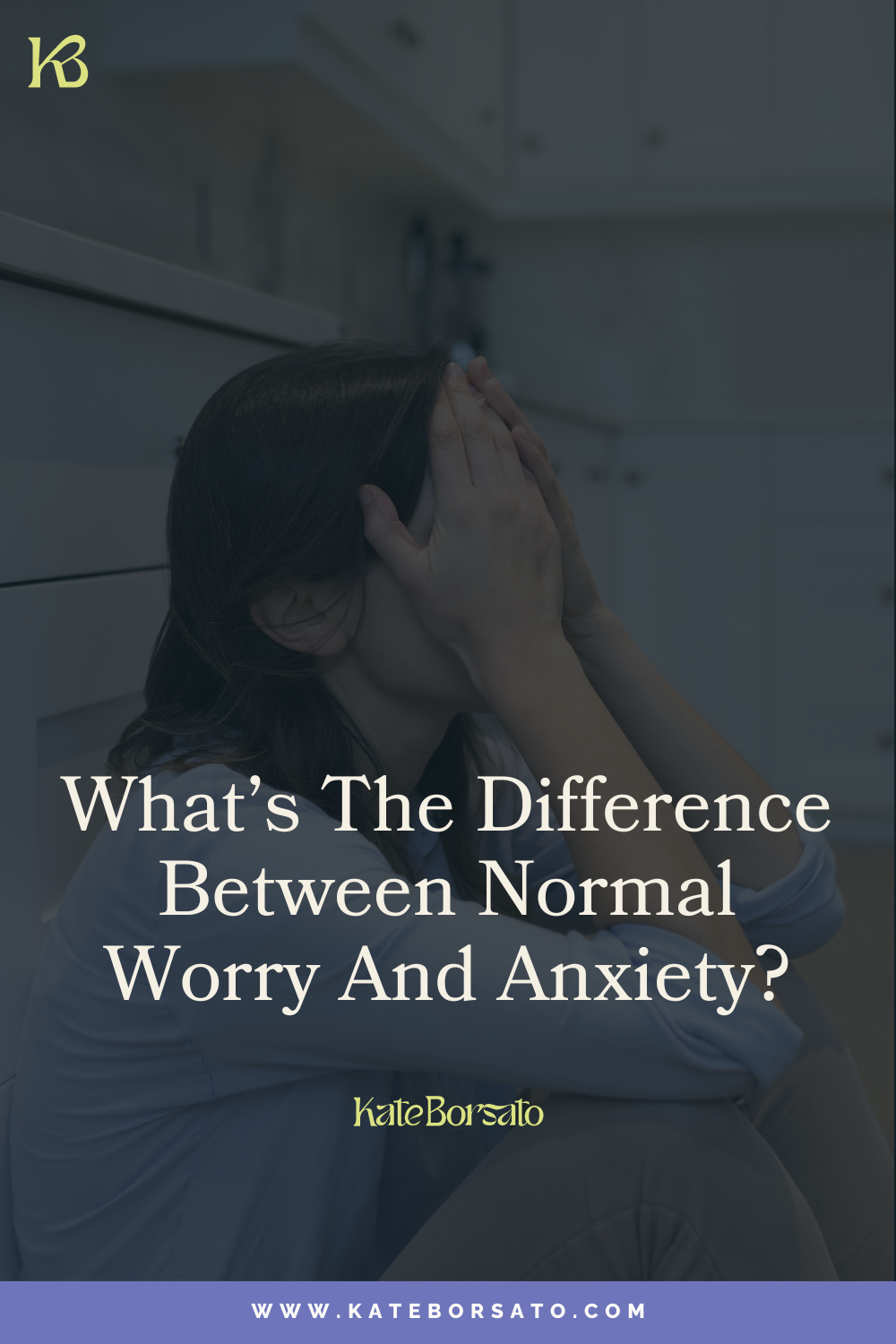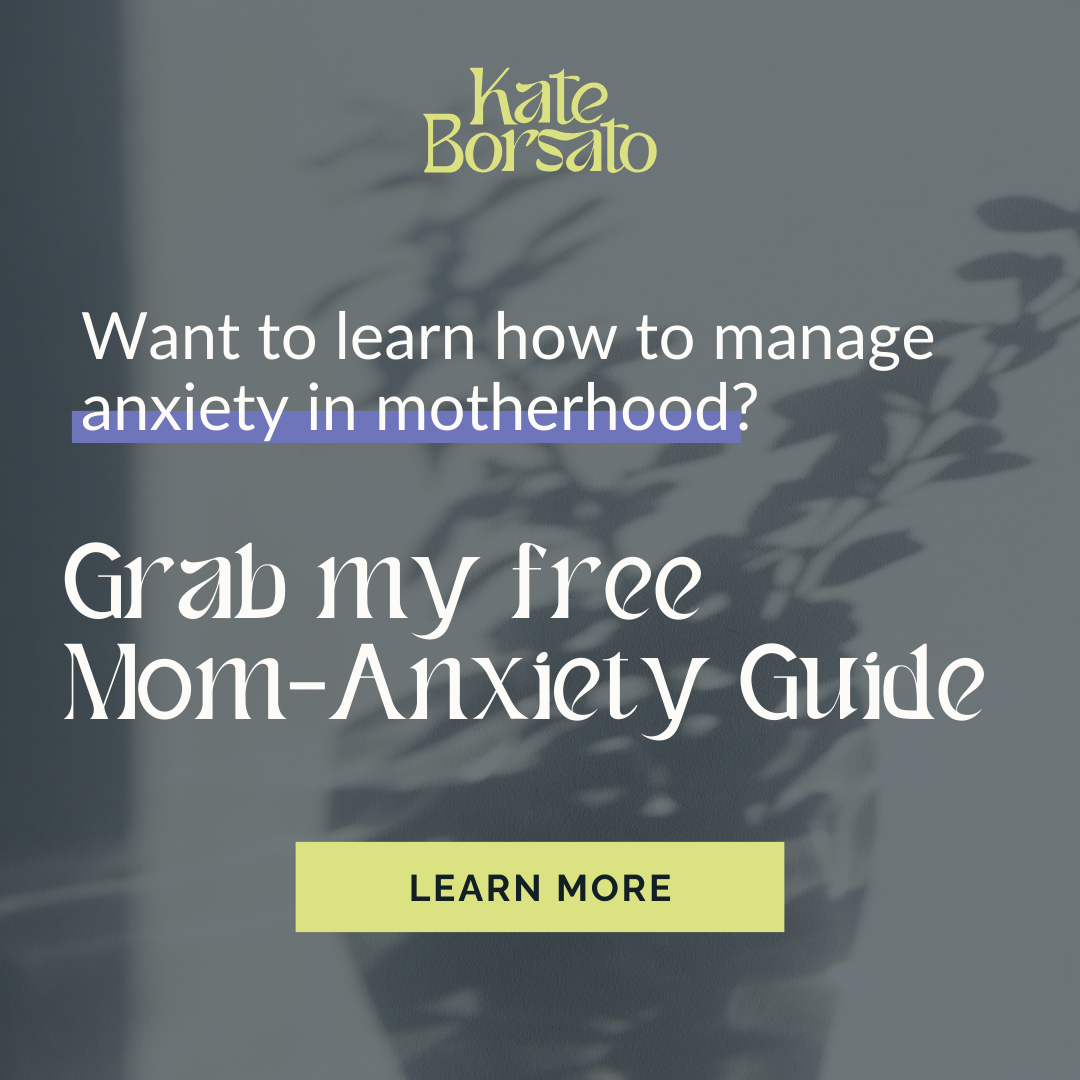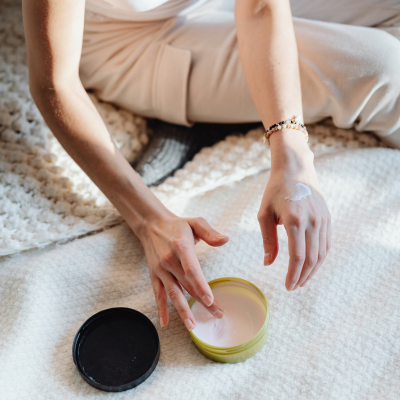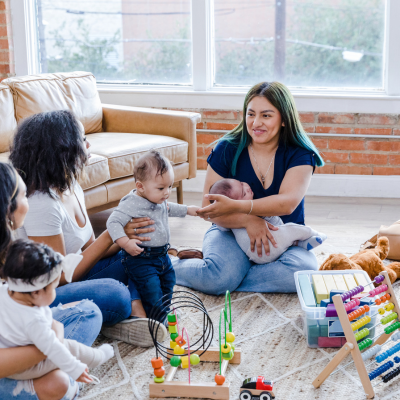Occasional worries or moments of stress are a natural part of parenthood. Abnormal anxiety is when those worries begin to control your life.
What’s the difference between normal worry and anxiety? For moms who feel on-edge, stressed, nervous and just generally on heightened alert, this can be the million dollar question.
So many moms find themselves wondering whether they’re experiencing abnormal anxiety, general stress, or regular worry. Because these can all look similar, it can be difficult to tell the difference.


A good way to get to the bottom of whether or not your experiences are “normal” is to ask yourself: “Is this becoming a problem in my life?”
It’s normal to worry. All parents worry about the wellbeing of their family from time to time. Think about how natural that is: there are more things that have to be on your radar, there are more potential threats to evaluate, and you’re responsible for taking reasonable action to protect your little ones. Occasional worries or moments of stress are a natural part of parenthood.
Abnormal anxiety, however, is when those worries aren’t rooted in a realistic fear OR they begin to take up way too much space in your day-to-day life.
If you’re having a hard time understanding whether or not anxiety is playing too significant a role in your life, the below guide can help you understand the difference between what’s normal… and what’s not.
What normal worry looks like:
If your fears or worries look like these descriptions below, then you’re probably in that “normal” zone.
The problem you’re focused on is in an attempt to resolve a current situation.
When a threat or a real problem presents itself, worrying in response to that issue is a natural response. If, for example, you find yourself weighing appropriate actions in response to the fact that your child is being bullied at school, that’s a normal worry. Because the situation is real and upon you, the stress is warranted.
You have some control over the worry process.
Are you able to separate yourself from whatever is stressing you out or is it consuming all of your mental space? If you have some control over your emotions towards the situation, then what you’re experiencing is still in the healthy range of normal worry. If you’re able to think about it but then set it aside in order to have dinner with your family or take a call from your sister, that’s a good sign.
These worries are in a response to a specific trigger.
What happened before you started to feel anxious? When there’s a specific cause or trigger, the thoughts that follow are usually a natural response. For example, if you saw a car driving well over the speed limit just outside your house where your kids play, it’s understandable to fear an accident and move your children to a safer space.
You’re not spending most of your time in a panic cycle.
If you’re able to keep your thoughts in check without cycling out of control, you’re probably experiencing normal worry versus a more problematic anxiety. Ask yourself: am I considering a situation from a realistic angle without blowing it out of proportion or am I focusing on unlikely worst-case scenarios? If it’s the former, you’re doing alright.
Signs you could be dealing with anxiety:
There’s a line between regular, healthy worries versus anxiety that is not productive and problematic. These are the red flags that anxiety is playing a role.
You’re attempting to reduce general uncertainty.
A lot of unhealthy anxiety comes from a place of wanting control. Are you constantly trying to manage things that are outside of your control? That’s impossible to achieve. All that does is add to anxiety and overwhelm. While it can feel constructive, it’s not.
Nothing specifically caused it, you’re just stressing out of habit.
There’s a big difference between noticing something upsetting or receiving a stressful message and then having an emotional response based on that. But if you’re feeling anxious all the time and independent of whether or not something has caused to trigger that unease, then you might be dealing with anxiety that is no longer considered normal. Do you wake up anxious? Do you feel anxiety spike at random times for no reason?
The focus of your thoughts are unlikely.
It’s one thing to worry about a child’s scraped knee and respond by disinfecting and bandaging up the cut. It’s another thing to assume it will become infected, monitor the injury continuously, and prevent your child from riding her bike as a precaution. One way to tell the difference between healthy worry and abnormal anxiety is to ask yourself: “Is what I’m fearing logical and realistic or is this scenario in my mind unlikely?”
The anxiety is getting in the way of everyday life.
One of the biggest tell-tale signs that a regular, logical fear has crossed over the abnormal anxiety is when your actions change in an effort to prevent or avoid whatever is causing the anxiety. If your day-to-day life, routine or relationships are being compromised because of whatever is stressing you out, that is no longer normal and you do not have to live with or accept that.
Looking for more support with anxiety, stress, and overwhelm in motherhood? Be sure to follow along on Instagram and send any thoughts or questions my way.
And if you’re feeling like you’re experiencing abnormal anxiety and not just riding the waves of the regular worries that all parents experience, I have a free Anxiety Masterclass and Workbook to get you started.

















Comments +